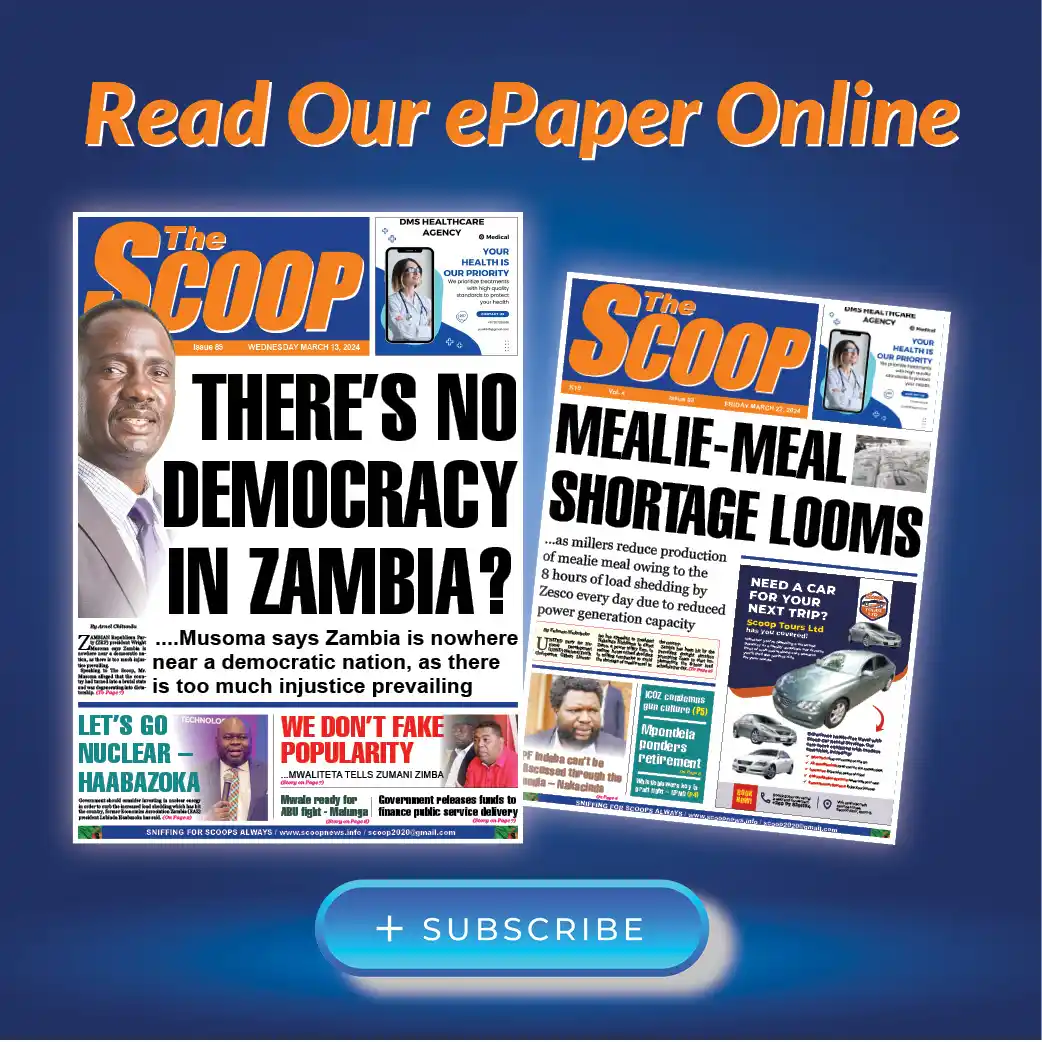ZAMBIA is one country with 73 tribes, and no one group has the right to secede.
It makes sad reading that when the government is trying so hard to unite the all 73 tribes through appointment of individuals from all the 10 provinces in various senior government positions, a single tribe, Lozi, via the Barotse Royal Establishment is calling for secession of a region from the rest of the country.
This is a recipe for instability and anarchy in the country.
Let us imagine that their demand is met and the Barotseland Agreement of 1964 is restored today. What will happen to all Lozis that are serving in various senior government positions? Will all Lozi ministers and ambassadors lose their jobs?
Will they cease to be Zambians forthwith and return to Barotseland, and apply for visas whenever they want to cross to Zambia?
How about all the Zambians from other provinces working in Barotseland, will they be kicked out and head back home to Zambia and take over jobs left behind by Barotse natives?
Of course, the Lozis are arguably the most numerous people in Western Province but the leaders of some other ethnic groups who live in the region, such as the Nkoya and Mbunda, are opposed to independence.
This is why we are saying that any attempt to delink Western Province from the rest of Zambia is a recipe for instability in the country.
We therefore agree with the Nkoya Royal Council and Kazanga Cultural Association who have charged that the Lozi’s Barotse Royal Establishment has no authority to speak on behalf of other tribes in the region without consulting them.
The Nkoya and Mbunda traditional leaders have risen against the Barotse Royal Establishment for allegedly bulldozing the secession of Western Province from Zambia without consulting them through the Nkoya Royal Establishment.
Speaking to The Scoop, Nkoya Royal Council Chairman David Mfunjo alleged that the Barotse Royal Establishment had no authority and mandate to speak on behalf of a number of tribes in Western Province without any consultations.
“We are hereby challenge the people associated with the Barotse Royal Establishment as to whose authority they have to proceed and issue such statements.
We, therefore, stand in solidarity with President Hakainde Hichilema when he said there is no Barotseland but a unitary country, Zambia, under the theme, One Zambia, One Nation,” Mr. Mfunjo said.
He warned that, allowing the illegal secession of Western Province from Zambia might cause anarchy and lay the groundwork for the subjugation of Nkoyas by the Lozis, a situation that they shall not allow to happen.
And Kazanga Cultural Association chairman Mwiba Namenda has called for dialogue over the matter adding that the government must be proactive by listening to other tribes of the Western Province, mainly the Nkoya and the Mbunda people, whose Chiefs needed to be met by the government officials and the Head of State.
“We are equally concerned with setbacks on Traditional governance in attending to issues about the people of Western Province. It is a fact that all Government appointees from the province are of Lozi extraction, making a balanced opinion difficult,” Mr. Namenda said.
Meanwhile, Kaoma District Mbunda Royal Council Secretary Kaunda Nyumbu has disclosed that the Mbunda people have resolved to firmly stand with the government in promoting Zambia as a unitary State.
Mr. Kaunda further stated that the Mbunda people were fully in support of President Hichilema’s pronouncement that there was no such country called Barotseland.
He said Mbunda people were not part of the fictitious existence of the state of Barotseland nor were they available to support the region’s succession from Zambia.
“As Mbunda people, we are neither part of the hullabaloo surrounding the fictitious existence of the state of Barotseland nor are we available for any rebellious actions in support of the quest for Barotseland,” he said.
He noted that Zambia was governed by one law that covers the entire territory and not a part of it adding that the so-called Barotseland could not function as a kingdom because a kingdom is established by the existence of only one ethnic grouping unlike Western Province which is inhabited by multiple indigenous ethnic groups.
Speaking when he addressed permanent secretaries and other senior government officials last week, President Hakainde Hichilema also stated that there was no entity called Barotseland within Zambia.
Mr. Hichilema further called on Western Province permanent secretary Simomo Akapelwa to inform people in the region that Zambia was a unitary State.
We totally agree with him.
We are also in agreement with the Nkoya and Mbunda traditional leaders that allowing the secession of Western Province from the rest of Zambia might cause anarchy.
The secessionist sentiments especially in this era are misplaced.
It is actually contrary to the law that establishes Zambia as a republic which does not provide for the operation of a state within a State.
Probably, this could be a reason successive Zambian administrations from the first republican president Kenneth Kaunda who signed the agreement five months before Zambia attained independence, to Frederick Chiluba, to the late Levy Mwanawasa, Rupiah Banda and Micheal Chilufya and to Edgar Lungu had all ignored the spirit and letter of the agreement, and the issue somehow fizzled out until this year.
Our advice to our Lozi brothers and sisters is that they should not focus their attention on the Barotseland Agreement of 1964 which would not materialize but embrace various developmental projects that the government is delivering to them through Community Development Funds (CDF), among others.
We urge them to remain calm ,and we implore the UPND-led government to take the much-needed development in the region.




























